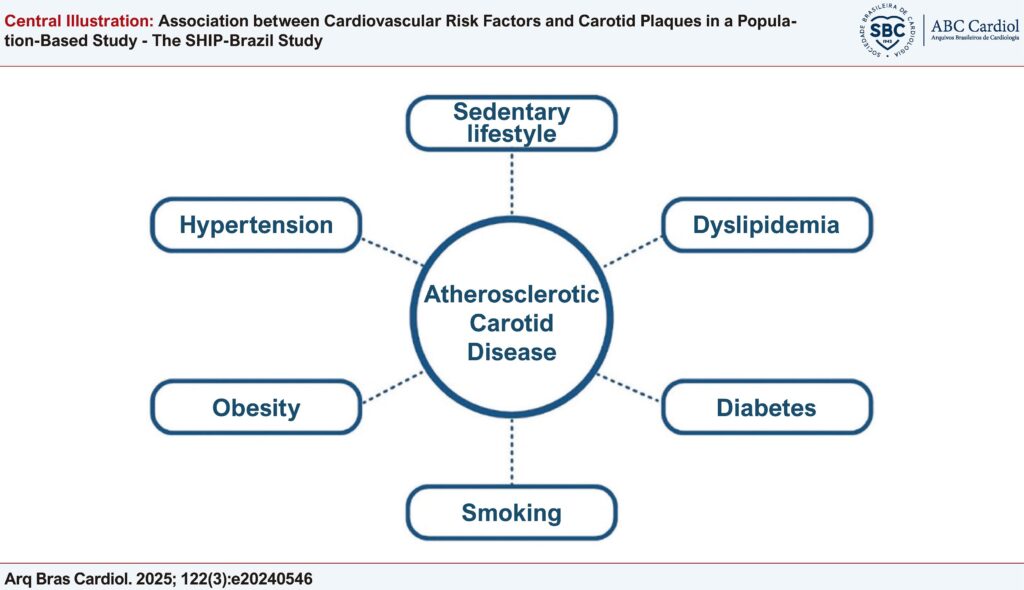Arq. Bras. Cardiol. 2025; 122(3): e20240546
Association between Cardiovascular Risk Factors and Carotid Plaques in a Population-Based Study – The SHIP-Brazil Study
Abstract
Background
Atherosclerotic disease is a relevant cause of morbidity and mortality in the general population, and it is important to detect factors that can influence its prevention.
Objective
To evaluate the association of cardiovascular risk factors with carotid plaques in participants of the Study of Health in Pomerania (SHIP) – Brazil.
Methods
A total of 1,953 participants were assessed for the presence of cardiovascular risk factors (hypertension, dyslipidemia, type 2 diabetes, obesity, smoking and physical inactivity) and sociodemographic variables (gender, age group, Germanic culture, color/race self-declared, and alcohol consumption), waist circumference measurement, waist-to-hip ratio and waist-to-height ratio. The presence of carotid plaques was analyzed by ultrasound. The association between the study variables and carotid plaques was assessed using the Chi-square test. A p-value < 0.05 was considered significant.
Results
Plaques were present in 56.5% of hypertensive patients (p<0.001), 49.8% of dyslipidemic patients (p<0.001), 62% of diabetic patients (p<0.001), 52% of smokers, 29% of those who had never smoked (p<0.001), 39.5% of sedentary people and 33.1% of non-sedentary people (p=0.014), 43.7% of obese people and 26.1% of eutrophic people (p<0.001).
Conclusion
Carotid plaques were prevalent in men, aged between 60 and 79, white, hypertensive, dyslipidemic, diabetic, smokers, sedentary and obese, illiterate, in economic class A1/A2, and of Germanic culture, and low alcohol consumption.
372

